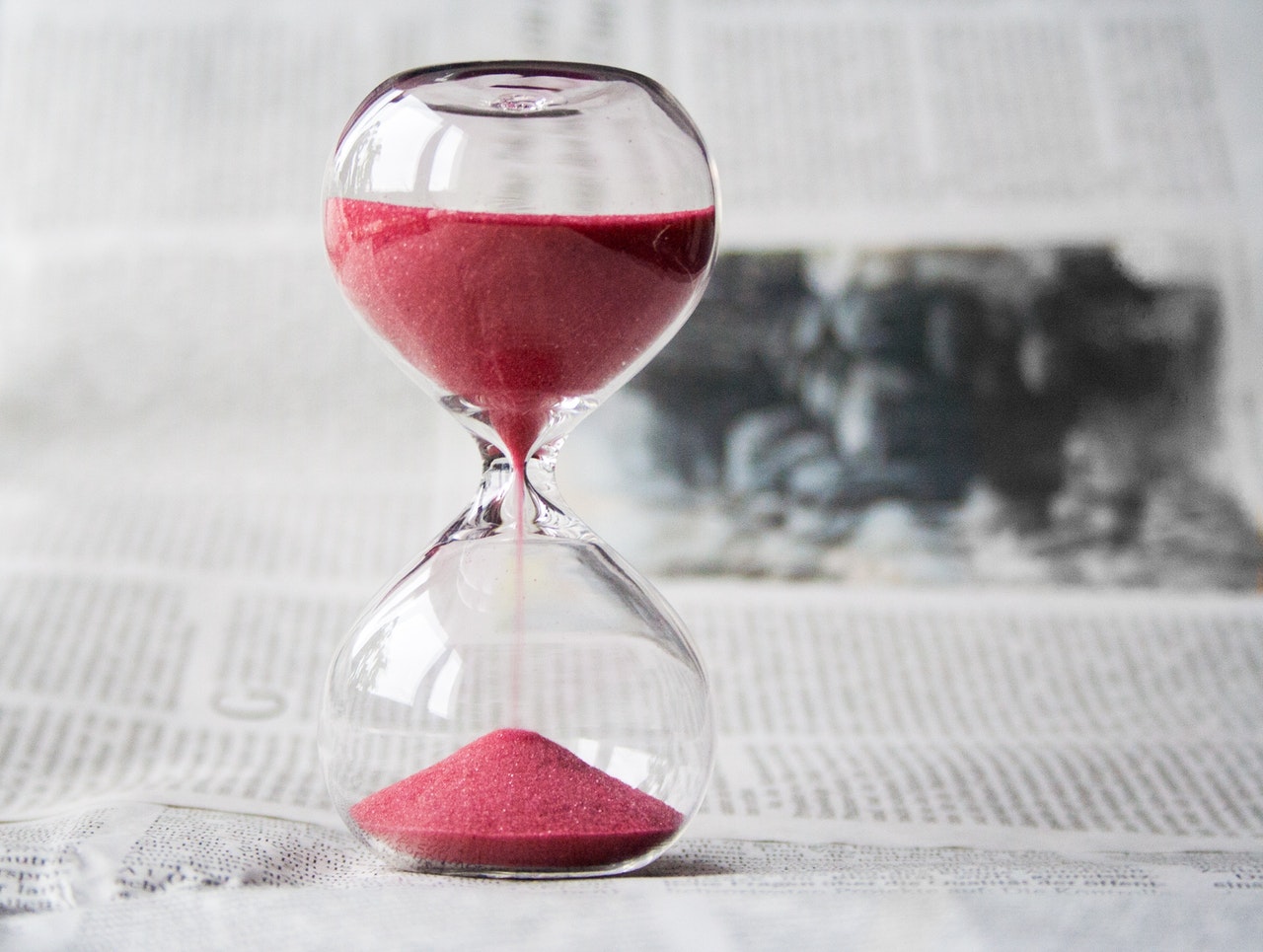
How many times in life has someone told you “that’s a waste of time”? How often have you said those words to someone else, or even to yourself?
Here’s the thing: nobody other than you can define what is or isn’t a waste of your time, because it’s YOUR time.
It belongs to you and nobody else. You can and should use it as you see fit.
Frankly, anybody trying to tell you how to use or not use your time is judging your life and your choices according to their programming, their biases, their desires, their world view…and such a judgment is almost certainly worthless because it’s all about them.
When someone says “that’s a waste of time” to someone else, what they really mean is “that’s not how I would spend my time”, or “that’s not how I think you should spend your time”, or maybe even “I think you should be spending more time on/with me”.
Making someone else’s choices all about you…rather selfish, don’t you think?
If they are not you, they are not qualified to judge your path.
Of course, the same goes for you. You are not qualified to judge someone else’s use of time any more than they are qualified to judge yours.
The real question though is this: How do you effectively judge your own actions and use of time?
I’d recommend 5 simple heuristics:
- Do you WANT to or LOVE to do it? Does it feel AUTHENTIC to you?
- Does it make you HAPPY and leave you feeling mentally or emotionally ENERGIZED?
- If today was your last day alive, would you REGRET doing it, or NOT doing it?
- Does it move you CLOSER to who and where you want to be in life, or FARTHER away?
- Does it cause direct HARM to others?
Let’s look at each of these in turn.
1st – Do you WANT to or LOVE to do it? Does it feel AUTHENTIC to you?
I’m a big believer in finding your authentic self, and living accordingly. If you don’t want to do something, if you’d have to force yourself and would never love doing it, then you probably shouldn’t be doing that.
Hell, if it’s the right thing for you to be doing, not only will you likely not have to force yourself to do it, you may need to force yourself to take a break 😂 I’ve personally found that, if you enjoy the process, you’re on the right track, but if the process feels like a slog and you’re only sticking it out for some end result, you’re probably off-track.
Are there exceptions? What about things like exercise, or a healthy diet? Good question…
I’d actually say that, if you are living authentically, you will find that diet and health things will fix themselves.
It may sound counterintuitive (and there is an element of feedback loop here), but I think most people who eat an unhealthy diet or live an inactive lifestyle do so because they are mentally and emotionally drained by living inauthentically…and if they would change that piece first, and live authentically, everything else would start to fall into place.
This idea of “do what you want, and not what you don’t” may sound hedonistic, but in fact it is the deepest possible wisdom.
I think there’s a high degree of chance that we are all born with a specific nature, an inherent personality, which is CLEARLY visible to anyone who has kids. That inherent personality though may then be shaped or warped by our environment over time, for good or ill. The problem is, outside forces do vastly too much of that shaping, mostly at a young age and without our consent, and so most adults end up a FAR cry from their authentic selves.
Children, especially little children, are almost always truly authentic…and adults tend to find it cute, or charming, and then try to stamp it out for one reason or another as they grow older. “You’ve got to be realistic. Responsible. You have a duty. Choose the safe path. Follow the rules. Fit in.”
Yuck.
Of course, it’s worth making a distinction between ChildLIKE, and ChildISH.
We should always be curious, authentic, and full of awe and wonder, fearless, open to new possibilities, and full of joy and love and creativity…ChildLIKE. We do not want to be immature, easily rattled, brittle, entitled, demanding, or in any other way ChildISH. These things tend to go away naturally as your brain develops.
The good stuff though tends to get stamped out by adults and societal expectations.
Fuckers.
Though I’m not remotely religious, I think this is what Jesus meant by “Assuredly, I say to you, unless you change and become as little children, you will by no means enter the kingdom of heaven.” (Side note: pretty sure this does not mean “Kingdom of Heaven” as in some magical separate place after we die…it almost certainly means entering a pre-fall, awakened or enlightened state of existence, right here and now.)
We need to live authentically, fearlessly, as our unashamed selves, and that should be your first heuristic.
2nd – Does it make you HAPPY and leave you feeling mentally or emotionally ENERGIZED?
Your mind and especially your body know very clearly what is and isn’t good for you. If it’s bad for you, it will leave you feeling physically, mentally, and emotionally drained. You might feel sick, tired, stressed, angry, etc. You’ll almost certainly regret it afterwards, wonder why you did it, “what was I thinking, I’ll never do that again”, etc. etc.
If it’s good for you, if it’s the right thing to be doing, it will leave you feeling good. Energized, not drained. Emotionally uplifted, not depressed. Happy and content and thinking “I’m so glad I did that, I should do that again”.
And I don’t mean a happy high followed by a rebounding low, like drugs or caffeine might provide. When you come down from the high of doing the right things, you’ll likely settle into a fairly positive, content base state, call it a 7 out of 10. It lifts your baseline to a better place.
Pay close, close attention to how things make you feel, and your energy after, and let that guide your decisions.
3rd – If today was your last day alive, would you REGRET doing it, or NOT doing it?
This, I think, is quite simple. Picture yourself on your deathbed, looking back on your life. Set aside all thought of outside judgment…what other people think isn’t the point here; what YOU truly think, without accounting for outside opinions, is all that matters here. With that in mind, would you regret your choice? Or would you do the same thing again in a heartbeat?
If, from that perspective, you feel you would do the same thing over again, or if you would regret not having done it, then it’s probably the right thing for you to be doing.
Try to live your life with as few regret as possible.
4th – Does it move you CLOSER to who and where you want to be in life, or FARTHER away?
This I think is much less important than the first 3, primarily because you lack the vantage point to see clearly how things will turn our (or even how they should turn out), but perhaps it can serve as a bit of a check against destructive hedonism.
My gut tells me that, if we just apply heuristics 1-3, our lives will naturally move closer to who and where we truly want or need to be, and that frankly the only way to move farther away is to live inauthentically.
That said, if you have a deep, authentic goal you want to reach, something that requires long-term planning and effort, it can help to weigh decisions with this in mind: “If I do this, does it move me closer to my goal? Or farther away?”
Do with this as you will.
5th – Does it cause direct HARM to others?
For this, I want to make a very clear distinction regarding direct harm. Stealing, physically harming someone, saying purposefully cruel and hurtful things to people, that sort of stuff…those are direct harm, and I believe those sorts of things are inauthentic (excepting perhaps brain damage in the doer).
I believe the vast majority of people who engage in those things have themselves been harmed, and are living deeply inauthentic lives, lashing out in pain and in a futile bid for a feeling of power to check the powerlessness they deeply feel.
Why should you avoid harm? While I don’t believe in Karma in the traditional mystical sense, but I have clearly observed that what you put out into the world most certainly seems to come back to you, magnified. The golden rule (do unto others as you would have them do unto you), and the silver rule (don’t do to others anything you wouldn’t want them to do to you), exist for this reason.
An authentic life appears to be non-zero sum; it is expansive, positive, and energetically uplifting. You can see and feel the character of someone who is living an authentic life…you want to be around them, they lift the people they come into contact with.
I can’t think of a better way to describe it, but I assure you, you will know it when you encounter it. It is unmistakable.
Of course, you are not in control of how others feel, nor is their experience of reality your purview. If they are offended by how you live, what you do, or what you say, and you were not acting to purposefully cause them harm, then ignore them and keep living as you see fit.
Their problems are their problems. You should simply aim to do no direct harm.
And there you have it. Your life, your time, is a non-renewable resource. You don’t know how much time you have, and could run out at any moment. Only you can judge how best to use it, and now you have a clear framework to help you make a more effective judgment.
Knowing just how deeply we are conditioned and even brainwashed as children (and as adults), by our parents, our teachers, our peers, our governments, and especially our religions, having a framework like this can help you to strip away the conditioned bullshit, to identify our authentic natures, and judge how best to use our time from that perspective.
If you live authentically, I believe you can’t help but be a positive sum, a force for good and joy in the world, and I can’t imagine a better way to live, a more beautiful way to move through life.
And I truly believe that if you apply these heuristics in your own life, you will see the benefits that come from authenticity.
But your life, and your path through life, is yours and yours alone.
I “know” nothing and am certain of nothing, so take all of this with a grain of salt, and you do you 😁
